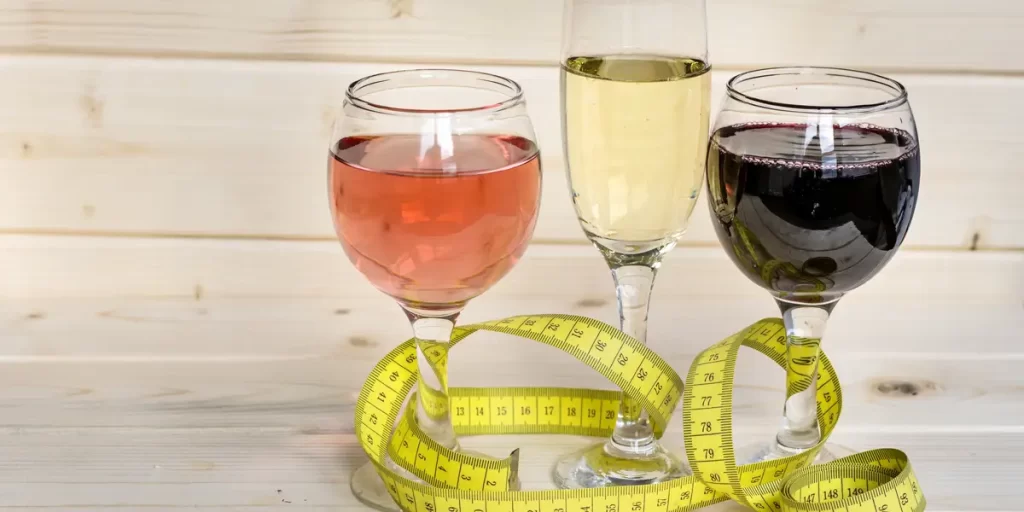
When someone is on a diet, alcohol is often one of the first things to go. It is often referred to as ‘empty calories’, as it doesn’t contain vitamins or nutrients that are beneficial for the body. Many people follow a certain diet for health reasons, and there are indeed various health risks associated with drinking alcohol.
However, drinking alcohol is extremely common in social settings and day-to-day life; many dieters may find it difficult to cut out alcohol completely. Food has a big effect on how our body handles alcohol, and it’s important to know how dieting may have an impact on alcohol consumption and vice versa.
Effects of Alcohol on Dieting
The effects of alcohol on diet can vary depending on the goals of the diet and the amount or type of alcohol consumed. For those dieting with the intention of weight loss, the calories in alcohol should be considered. Alcohol contains 7 calories per gram, which is more than carbohydrates at 4 calories per gram, but less than fat at 9 calories per gram.
Most often, alcohol is consumed on top of a daily calorie limit, so it may increase overall calorie intake and reduce weight loss. Also, alcohol can increase impulsivity which can reduce self-control when limiting certain foods or calories.
New Year. Real Recovery.
The pressures of the season are real. Find lasting peace and expert support.

Alcohol consumption while dieting can often be counterproductive through increased calorie intake, increased hunger and food cravings. Alcohol can become increasingly dangerous if combined with diet pills or laxatives, as the combination may cause a negative reaction or serious consequences.
Moderate Drinkers
Moderate drinkers may not notice a change in weight if their drinking is occasional, or they eat a relatively healthy diet overall. The calories in a couple of drinks a week can accumulate over time and result in weight gain, but if a person is moderately active, or eat a lower calorie diet to account for alcohol, weight gain may be avoidable.
Heavy Drinkers
The relationship between alcohol and weight gain in heavy drinking can go two ways. In some cases, the excess calories from a large amount of alcohol can contribute to substantial weight gain and even obesity. In other cases, heavy drinkers may eat less, and their overall calories are more or less replaced by alcohol. Though this might result in weight loss, this is an extremely dangerous and harmful pattern of alcohol abuse – one associated with serious risks to health.
Preventing Alcoholism While Dieting
Drinking while dieting can increase the effects of alcohol, as there’s not as much food in the body to absorb or help break down the alcohol. This can ultimately lead to feeling the effects of alcohol more quickly and becoming intoxicated faster.
This increased effect of alcohol can become addictive, and people may begin to purposefully restrict food intake to increase the effects of alcohol. Because the risks for alcohol abuse and addiction can be heightened while dieting, it’s important to consider ways to prevent alcoholism. Knowing the risks and effects of dieting on how alcohol affects the body can encourage safe use by reducing overall drinks or drinking more slowly than usual.
Healthy Diets That Include Alcohol
While there are various risks to consuming alcohol that each person must consider, there are several dietary patterns that allow for or even recommend moderate alcohol intake.
Various diet plans based on specific calorie guidelines, like Weight Watchers or Jenny Craig, can be adjusted to account for alcohol intake. This usually means reducing the size of a meal or snack to ‘make room’ for alcohol, without going over the calorie limit.
Other diet plans like the Mediterranean diet or a vegetarian diet permit moderate intake of alcohol, usually consumed with meals and usually red wine. This inclusion is based on some of the evidence supporting the benefits of wine on heart health and overall wellbeing. Importantly, these are small serving sizes and to be enjoyed with a meal, rather than to become intoxicated.
If you or someone you care about is misusing alcohol while dieting or may have an alcohol addiction, contact The Recovery Village Ridgefield today to discuss treatment options.



